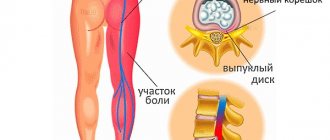Infertility itself is a separate and large-scale topic, because it can occur with various symptoms and be the result of a variety of factors and causes. There is male infertility and female infertility, that is, non-occurrence of pregnancy can be caused by both actual problems of reproductive function in men and problems of reproductive function in women.
- Causes
- Kinds
- Treatment
- Recommendations
Infertility, as you can understand, is the inability of a mature organism to produce offspring. If pregnancy, subject to normal sexual life and without the use of any contraception, does not occur within the next two years, then a diagnosis of “infertility” is made. And although this is, in principle, not a disease, but a condition caused by certain factors, to get rid of infertility it is often necessary to make a lot of effort, or even even be faced with the need to use alternative, not entirely traditional forms of conception. Also, infertility is a diagnosis for the general picture of the anamnesis (medical history) in the case where there have been repeated miscarriages, that is, we are talking about a pathology such as miscarriage.
How to determine the disease
Infertility in women is determined by the absence of pregnancy during open sexual intercourse, contact with ejaculation inside for one and a half to two years.
At the same time, doctors divide the diagnosis of infertility into 2 categories:
- Absolute infertility. This disease indicates that there are irreversible pathological changes in the female body (abnormal development of the female organs), due to which the fair sex cannot become pregnant, and never.
- Relative infertility. This category is more comforting than the first option, since such infertility is treatable and subsequently the woman has considerable chances of having a baby.
Physiology of monthly cycles
The inability to conceive can occur with either a normal or an irregular menstrual cycle. The normal female cycle ranges from 21 days to 35, divided into three successive phases:
1) follicular – the phase of egg maturation, normally the duration is not less than 7, but not more than 22 days;
2) ovulatory – the moment of release of a mature oocyte, the beginning of the fertile phase;
3) luteal – the period of the corpus luteum, normally its duration is from 13 to 15 days.
A couple of days before and after ovulation is considered the fertile phase, because... the probability of conception is as high as possible. Conception cannot occur before or after the fertile phase! But it is worth understanding that this phase of the menstrual cycle occurs purely individually for each woman. If the current monthly cycle does not end with pregnancy, then under the influence of estrogen on the body, it prepares for the next cycle.
Types of infertility
In addition to the above categories of infertility - relative and absolute, experts also divide this disease into separate types:
- Primary female infertility;
- Secondary infertility in women.
In the first case, the diagnosis is given to women who have never conceived a child, and in the second to those who have at least once experienced the feeling of the birth of life within themselves. Moreover, in the second case, it does not matter for doctors whether the woman gave birth during her first pregnancy, had a miscarriage, or had an abortion.
In a large number of cases, the main cause of infertility (secondary type) among representatives of the fair half is a previously performed surgical abortion performed before the first birth.
Unprepared for such shocks as curettage, the female reproductive system reacts to everything that happens very sharply and negatively, if we compare the same process with women who had an abortion already, being mothers.
Young representatives of the fair half who have had an abortion, as a rule, experience such consequences as obstruction in the fallopian tubes, infectious and other inflammation of the appendages, etc.
All these phenomena that occur after an abortion are the causes of infertility in women, and this is important to remember and know.
There is no need to analyze the causes of infertility and try to solve the problem by buying one or another advertised infertility drugs on your own. If the family does not have a baby for a long time, consult a doctor with your spouse.
When treating infertility, both spouses must undergo examination and a course of special treatment.
Prevention
Prevention of infertility comes down to preventing pathological conditions that can provoke diseases of the reproductive system in a woman. Gynecologists give the following recommendations:
- carry out routine vaccination of children against diseases that can provoke pelvic inflammation - measles, diphtheria, scarlet fever;
- exclude early sexual activity;
- use high-quality underwear, refuse to wear thongs, which provoke infection of the vagina with E. coli;
- use reliable contraception to avoid abortion;
- seek medical help for menstrual irregularities or pain in the lower abdomen;
- undergo an annual medical examination by a gynecologist;
- eliminate bad habits and adhere to proper nutrition.
Medicine proves that female infertility can be treated. The first task in a complex fight is to accurately determine the cause of the problem and correct diagnosis.
How is female infertility diagnosed?
Methods for diagnosing infertility in the fair sex directly depend on the reasons that led to changes in the state of the female reproductive system, which made conceiving a child impossible.
As a rule, diagnosing female infertility takes several months, and sometimes a whole year. This is due to the characteristics of the female body. Separate tests and procedures to determine the cause of female infertility are taken and completed on specific days, in certain phases of the female cycle.
During these activities, the doctor prescribes:
- undergo a special hormone test;
- be tested for the presence of antisperm antibodies;
- undergo an ultrasound examination;
- undergo a special study indicating physiological abnormalities in the fallopian tubes (SSS and HSG);
- take a picture (X-ray) of the sella turcica, which will help the doctor determine the anomalies developing in the woman’s body;
- undergo laparoscopy (diagnostic examination of internal organs).
Main causes of infertility in women
Unfortunately, there are a huge number of reasons that lead to a woman’s infertility, but we will look at the main ones.
- Polycystic ovary syndrome. This disease, as a rule, is characterized by an increased presence of hair on different parts of the body, menstrual irregularities, and absence (partial absence) of ovulation. As a result, it leads to serious hormonal imbalance and infertility.
With polycystic ovary syndrome, the production of FSH is significantly reduced.
Doctors believe that it is the reduced level of FSH that is the main reason for the underdevelopment of follicles in the female body, which are responsible for the maturation of eggs for fertilization.
Typically, polycystic ovary disease is accompanied by the appearance of a large number of follicular cysts. They, in turn, reaching considerable sizes (up to 1 cm) seriously affect the ovaries.
The presence of follicular cysts can be detected using ultrasound (ultrasound).
- Problems associated with female ovulation. It was not in vain that we continued the list of the main reasons indicating infertility with this problem; it is one of the most common today. For a large number of representatives of the fair half, the menstrual cycle, for one reason or another unknown to the woman herself, is either less than 21 days or more than 35 days. In these cases, there is a fairly high risk that the egg simply either does not have time to be fertilized (it has not yet matured) or will no longer be viable.
When there is no ovulation, in most cases the female ovaries do not produce mature follicles, that is, there are simply no mature eggs for fertilization by sperm, hence pregnancy does not occur.
- Hormonal disbalance. Another reason for infertility is a woman’s hormonal imbalance.
The main symptom of female hormonal imbalance is the absence of menstruation.
Again, if there are no periods, the eggs do not mature and, as a result, infertility occurs.
It is worth noting that various diseases can cause such a malfunction, ranging from diseases of the pancreas and ending with improper functioning of the thyroid gland.
- Disturbances in the functioning of female ovaries. This cause of infertility is observed in 20% of women and has been progressing quite recently. Ovarian dysfunction leads to the fact that the female body simply cannot produce the required amount of hormones necessary for conception.
Dysfunction of the hypothalamic-pituitary system occurs due to previous head injuries, due to a violation of the chemical composition of the pituitary gland, due to the formation of benign or malignant tumors.
- Pathologies of the uterus (structural defect). If there are defects in the structure of the reproductive organ, the egg does not have the opportunity to attach to the endometrium, as a result, the woman cannot become pregnant.
Among non-congenital diseases and defects of the uterus, the most common are:
- myoma;
- polyps of the mucous membrane of the reproductive organ;
- endometriotic formations.
These diseases are treated and ultimately a woman has the opportunity to experience true feminine happiness.
There are also congenital defects of the uterus.
Among them:
- reproductive organ with an incomplete or uneven septum;
- bicornuate uterus;
- bifurcation of the uterus, etc.
Abnormal congenital defects of the reproductive organ are not inherited. Ultrasound examination helps to detect abnormalities.
Unfortunately, in cases with congenital defects, it is practically impossible to cure infertility. Only 5% of women have a chance of getting pregnant.
- Premature menopause (early).
Early or premature menopause leads to a malfunction of the ovaries, as a result ovulation disappears, the fair half cannot conceive a child.
The natural onset of menopause for the fair half is the age of 50 years and above. Meanwhile, in 30% of women, the supply of good eggs capable of maturing is exhausted much earlier, by the age of 40.
Early menopause can be recognized by the absence of the menstrual cycle.
Doctors believe that a similar phenomenon is observed in women due to depletion of the ovaries for one reason or another.
Early menopause can be cured. To do this, experts prescribe physiotherapy, medications to restore hormonal levels, and an active sex life to the fair sex.
As a rule, early menopause is a disease that is transmitted at the genetic level, that is, from generation to generation.
- Problems with the cervical canal (specific properties of mucus (its composition) in the cervix of the reproductive organ). If the mass is excessively thick, spermatozoa, as laboratory studies show, cannot overcome it. In addition, due to its composition, the mucus in the cervix is also poisonous for sperm, that is, it contains substances that adversely affect the male seed.
- Follicular syndrome. As a rule, under normal circumstances, after about 11 cycles, follicles with a good egg mature and then immediately exit into the fallopian tube to meet the sperm. However, sometimes it happens that the follicles do not open in time, then the egg does not leave the ovary and, accordingly, does not meet the sperm, and conception does not occur. Unfortunately, doctors cannot yet identify the true causes of this phenomenon, but they note that more than 4% of women have this syndrome.
- Erosion of the cervix of the reproductive organ. Erosion, oddly enough, is enough for a doctor to diagnose infertility, since it is precisely this that affects the change in the composition of mucus in the cervix. A similar disease is observed in a huge number of women today. It requires immediate response and treatment. The erosion is removed surgically, after which the specialist prescribes a course of drug therapy.
- Defects in the fallopian tubes or the fallopian tubes themselves. Various types of damage to the fallopian tubes, as a rule, cause inappropriate or complete obstruction of these tubes.
Damage to the fallopian tubes can occur due to sexually transmitted infections, as well as inflammation.
In addition, the fallopian tubes can be damaged in a number of other cases, for example, as a result of a very difficult birth, etc.
Diagnostics
To establish grade 2 infertility, a comprehensive examination is carried out:
- Mandatory
- Additional
- Gynecological examination on a bimanual chair, using a mirror
- Colposcopy
- Ultrasonography transvaginal or transabdominal
- Hysteroscopy, hysterography
- Smears for microflora, oncocytology
- MRI of the pituitary gland
- Blood and urine tests
- Sonography of endocrine glands
- Coagulogram
- Laparoscopy
- FLG, ECG
- Consultations with an endocrinologist, reproductive specialist, geneticist, psychologist
- Hormonal panel
- The spouse must undergo diagnostics.
- Signs
In addition to the fact that it is not possible to have a child, a woman can suspect this disease due to some symptoms:
- menstruation disorders: cessation of discharge, scanty or heavy periods, too painful;
- severe pain during sexual intercourse;
- aversion to intimacy;
- pronounced hair growth on the face, limbs, decreased hair growth on the pubis and head;
- acne, oily skin occurs when there is an excess of hormones;
- genital discharge is mucous or purulent, an unpleasant odor, or bleeding may indicate an STD or inflammation.
If a woman monitors her basal temperature, she can note the absence of ovulation according to the change schedule. In addition, the presence of concomitant diseases must be taken into account, especially in older patients.
Treatment of female infertility
Before starting infertility treatment, the doctor must accurately diagnose the cause of the disease.
It is worth knowing that once you have gotten rid of the problem of getting pregnant, you may get such problems again in the future, since the treatment in our case is temporary.
The main methods of treating female infertility today are:
- Medication method. Prescribing special medications that help normalize female hormones in the body, eliminate various types of infections, including infectious inflammatory processes, etc.
- Physiotherapeutic method. The main operating devices in this method are electrophoresis and douching with special medications.
- Surgical method. This method is used when the first two did not bring the desired result. It is usually prescribed for abnormal structures of the uterus, cysts on the ovaries, tumors in the genital area, etc.
- Method of artificial insemination. It is used in the treatment of infertility when other methods are powerless. Such procedures today include ICSI (artificial injection of sperm under the membrane of the egg, the resulting embryo is also artificially transplanted into the uterus), AI (introduction of sperm processed by a special method into the woman’s reproductive organ) and IVF (artificial mixing of several sperm and eggs, and then planting the fertilized egg in the uterus).
If you have not been able to conceive a child within two years of full (open) sexual activity, do not put off going to the doctor for too long. Remember, the reproductive function of the body of the fair half is limited, hurry up!
If you are experiencing infertility, do not self-medicate; this can lead to more serious consequences, to the point where you will never be able to experience the feeling of motherhood.











